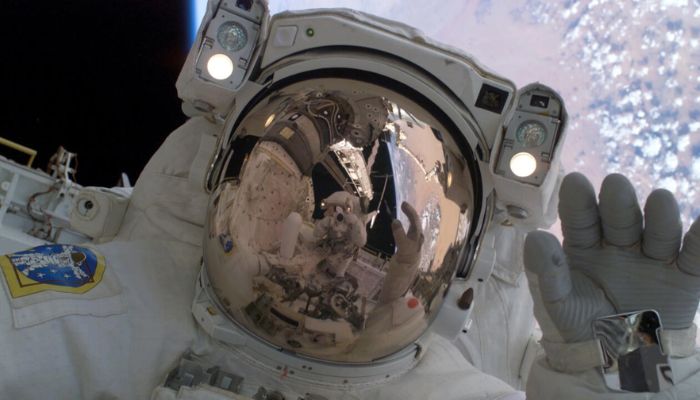[ad_1]
Paris: the first astronaut – or astronauts – The announcement of those with a physical disability may be made as soon as Wednesday, according to the European Space Agency.
People with physical disabilities have previously been excluded from one of the most exclusive and demanding jobs on earth – and beyond – due to strict selection requirements.
said Guillaume Wertz, head of space medicine at the European Space Agency France Press agency that AgencyParastronaut’s project required a “complete change in philosophy” around the concept of medical competency, which originally came from the military and selection of fighter pilots.
After conducting a feasibility study, the European Space Agency said potential candidates could include people with insufficiency of their lower limbs, whether from amputations or birth defects.
Shorter people up to 1.3 meters (4.3 ft) tall or those with different legs were also eligible to apply.
The educational and psychological requirements for the candidates remained the same as for any other astronaut. Applications closed in June 2021.
The European Space Agency (ESA) is expected to appoint four to six new European astronauts – without disabilities – during its cabinet in Paris on Wednesday.
While the parastronaut project works somewhat detachedly, Weerts said, “there is a real possibility that one or more persons with disabilities may be introduced as part of the advertisement.”
‘Disability is not a limitation’
In the hyper-fine world of space travel, small changes can become very complex and expensive.
For example, existing systems are designed for people of a certain height, Weerts says.
“What does that mean for a person of a shorter size? How can we ensure that this person can only reach the buttons?”
The European Space Agency plans to work with those selected to find the best way to overcome such potential challenges.
As a member of the selection committee, Weerts was unable to disclose details about specific nominees.
But he said that “a really large group of people” applied and made their way through the selection process.
“We came across very cool characters,” he said.
He added that the operation was “excellent evidence that a disability is not a handicap”.
“It’s really something we all believe in,” he said, adding that there was a high level of commitment to the project from ESA partners.
So when could the first astronauts with disabilities be launched?
“Space is not a business for people in a hurry,” Werse said.
It’s hard to predict the timeline because it “really depends on what we’re up against,” he said, adding that a lot of work will be done once ESA has selected its candidates.
But he said a disabled astronaut could be launched into space “probably in the next 10 years.”
“incredibly exciting”
Kamran Malik, chief executive of UK charity Disability Rights, said the project was “very exciting”.
“People with disabilities are excluded (from) large aspects of everything we do in the world,” he said. France Press agency.
“If we really want to explore the universe, we have to accept that we can only have it for a certain group of individuals.”
Malek applauded the European Space Agency’s plan to work with astronauts to figure out exactly what they need.
“I’m a wheelchair user,” he said, “and it’s much better for people to ask me what works for me, what I need, than to make assumptions about what someone can or can’t do.”
Malick said that while watching a space shuttle launch as a teenager, he dreamed of becoming an astronaut.
“Of course, I was soon told that wouldn’t happen. Don’t aspire to be an astronaut,” he said.
“I wish I was watching her now.”
[ad_2]
Source link

